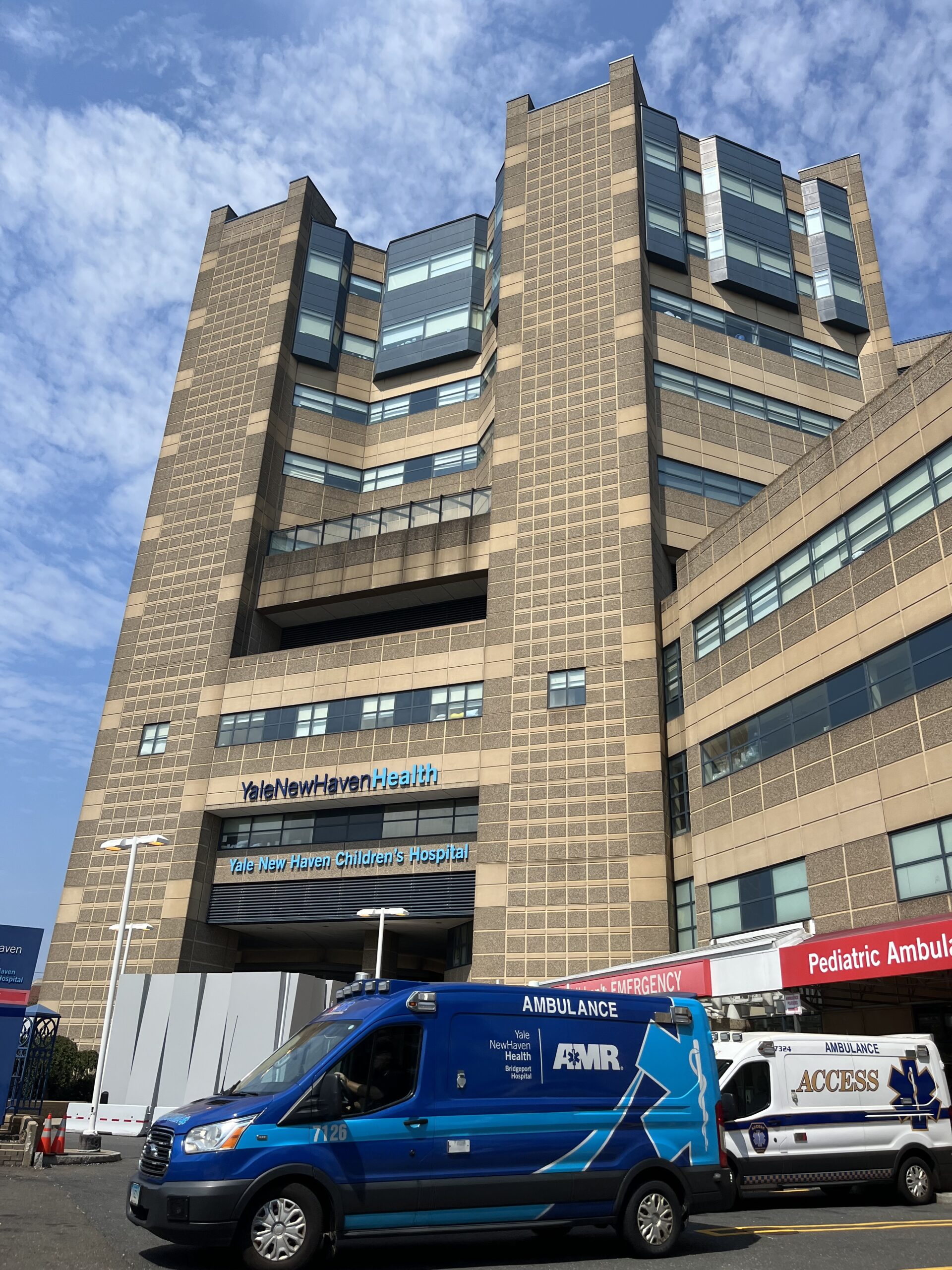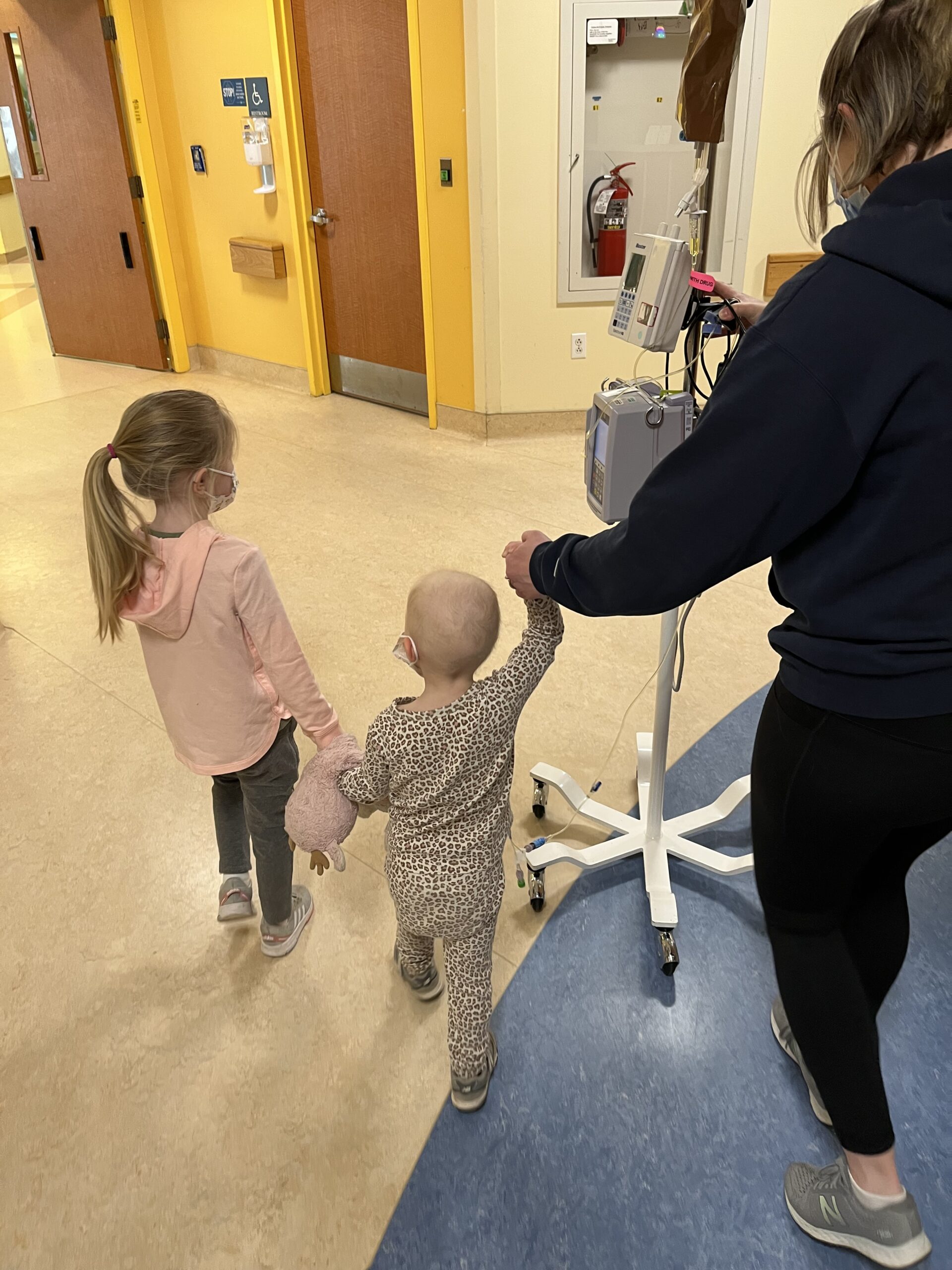Mission/About
Our Story
In 2022, we had two daughters and another on the way. We were like other families, busy going about our days, excited for the new addition to be born. We were woefully unprepared for how our lives would change.
In August of that year, our then two-year-old daughter began experiencing recurrent fevers and joint pain. She stopped bending her knees and walked around like Frankenstein. A few weeks passed. Despite several visits to the pediatrician, additional symptoms presented and she was not getting better. We found a new pediatrician, one that would listen to us and take our concerns seriously – not just tell us it was a virus repeatedly. Just one visit to the new pediatrician resulted in more extensive testing. Her blood was drawn, and shortly thereafter, we got the call to stop what we were doing and bring her to the Emergency Room immediately. After a few hours in the ER, we were informed our daughter had leukemia.



In the days that followed, we struggled with our new reality while trying to acclimate to life in the hospital. We had a baby due any day. A time that should have been exciting for our family turned dark. We were scared, stressed, hungry, and sleep deprived. We tried to learn as much about leukemia as we could. We asked our doctors and nurses a lot of questions. We were shocked to find out that parents were not provided with a meal while they were staying with their child unless they purchase it. We really couldn’t eat our daughters’ leftovers because she was receiving chemo and anything she ate was contaminated. Jeff would buy food from the cafeteria and bring it back to the room so we could eat together.
After a few days, Jeff left the hospital to be with our oldest child. Sam stayed. At that time, we were unaware that we could pay for food to be delivered to the room with our daughter’s food. Sam lost weight during this hospital stay – not good for someone pregnant and due any day. After that initial stay, we became frequent flyers, in total staying over two months in the hospital. Our daughter was prone to neutropenic fevers and required antibiotics and close supervision. With the birth of our third child, Sam stayed home, and Jeff stayed in the hospital with our two-year-old. Most days he barely ate. When he started ordering food to the room to eat with our daughter, the costs added up quickly. But with better nutrition, he was more attentive, more engaged, and was able to provide better care for our daughter. It is from this experience that Feeding Families Foundation was born.
Why
Caring for a hospitalized child with a critical illness is very challenging for parents. Hospitals are not places parents can sleep comfortably – or at all. Doctors and nurses are in and out of the room, machines beep incessantly, the hard couch doubles as the bed, and kids in the neighboring rooms cry. At the same time, parents are bombarded with information about their child’s condition and parents struggle to learn as much as they can. Parents try to focus but are often worried, tired, and hungry.
Did you know that when a child is in the hospital for a critical illness, the child (as the patient) is provided food but the parents are not? Parents must pay for food or go without. Sadly, parents skipping meals is common while caring for a child inpatient. Parents in these situations are stressed enough and need to eat for their own well-being, and that of their child’s, as proper nutrition helps parents to more effectively care and advocate for their child.

We started Feeding Families Foundation to address this food insecurity issue
When we talk about food insecurity in hospitals, we are highlighting the differences between access and affordability. Parents may have access to food but that doesn’t mean it’s affordable. In addition to paying health insurance premiums, deductibles, coinsurance, and for any service not covered by insurance, parents of hospitalized children also struggle with everyday bills and other costs: gas; hospital parking; hospital food; childcare for other children; etc. Some parents experience lost wages. These additional financial burdens magnify the strain on families already reeling from the emotional and physical toll of having a child in the hospital.
Notably, the two biggest concerns for parents when it comes to food in the hospital are (1) affordability and (2) not wanting to leave their child to go find food. Whether the food is $10/tray or $5, food costs can add up quickly for families already in a tough situation. Moreover, parents are reluctant to leave their child to obtain food. They often fear that they would miss a visit from the doctor or nurse, or an emergency would happen while they were away. Parents also feel that being physically present for their child helps to support and ease some anxiety or stress the child may have about being in the hospital.
Feeding Families Foundation’s objective
Feeding Families Foundation’s objective is to address both of these issues by covering the cost of caregiver meals and having those meals delivered to the hospital room so parents do not need to leave their child’s side.
Together we can eliminate hospital food insecurity for these parents so they can get back to what matters most – caring for their child.

Want a Feeding Families Meal Program at your Hospital? Hungry to help end hospital caregiver food insecurity?
Together, we can make an impact in the lives of families caring for their child— one hospital at a time.
